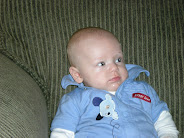
Amazon has launched what they hope will be the electronic replacement for the book in the form as we now know it. It is called KINDLE which is to call to mind the crackling of the fires of innovation; or could it be the crackling of the paper of burning books. As Amazon founder Jeff Bezos related to Newsweek reporter Steven Levy, "Books are the last bastion of analog."
I am not quite sure why books are seen, metaphorically, as analog's final defensive posture. I have never thought about books as continuous, time-steady signals, generally of the electronic variety. So maybe I need to tilt his comment a bit sideways. Does Bezos mean that the last bastion that analog must conquer is that of the book? By creating a revolutionary new way of experiencing books - digital in nature - will we thus conquer the paper versions of reading technology that have worked so well for more than 550 years? Conquer, bastions, revolutions - it is getting a bit militaristic all of a sudden. Books as a battlefield in the Art of War?
I am certainly NOT a Luddite, but maybe a curmudgeon, certainly a librarian, a volitional reader, and most definitely a bibliophile, bookworm, and collector of books. I love the feel of a book in my hands. The weight and heft of it. The paper. The font type and size. Margins. Inlays. Book covers. Frontispieces. Gilded fore-edges. The information on the book jacket flaps. All of the components, tangible and "un" that make each book unique.
Can Kindle give me this experience? Doubtful. Bezos' Weltanschauung of a book appears to be quite different from mine. And most likely from that of others as well. His attributes of a book - which must be an integral part of the Kindle - include projecting an "aura of bookishness" which by itself has all or no meaning. So to create this "aura", Kindle is the size of a paperback and extremely light. It also emulates a book with its tapering width. From a side view, Kindle has the same width as an ordinary pencil, not a "bookishness" characteristic where I am concerned. I personally enjoy a hefty book and the size and width of hardcovers are often a part of their appeal to me.
It uses a long life battery so that reading a book does not resemble the long past nascent experience of going to the movies and being confronted with "cliffhangers."
And if you go to the Amazon page and read all the features of Kindle, well, it is pretty impressive and certainly goes far beyond the scope of a book as we know it today. Its wireless connectivity enables it to function as an Internet device opening highways, roads, and bridges of literary opportunities. I cannot fault it for a lack of innovation.
But I am more concerned with how such devices will alter the creation of a story, a textbook, biography, poetry, newspapers. How will authors and readers alike be influenced by Bezos' vision of a new way of reading, writing, and publishing. In a world of infinite connectivity we can write along with an author - but do I want to? Authors can adjust text based on real time reviews of work-in-progress. Writing by poll. Hmmmm....
As much as the Internet has created a platform for all to pontificate, muse, yes, blog, debate, and so on, are we all Richard Russo quality writers? Writing along with David Sedaris as he works on his latest book of wit and satire leads to the creation of something other than that unique quality of "Sedaris-ness." Much will be lost. Being able to add an epilogue to Bob Woodward's latest book on the administration leads to never-ending books which may stray far and wide from the original topic and point of view. I cannot imagine the hubris of believing I can add anything of creative merit to Alice Munro's stories and would be bereft if indeed, her future works were edited or supplemented by we-the-reader.
So, I'll hold on to my home library for now as I investigate the potentials and uses of devices such as Kindle. Books will not go away anytime in the near future, nor will libraries or bookstores. And more will be revealed!














